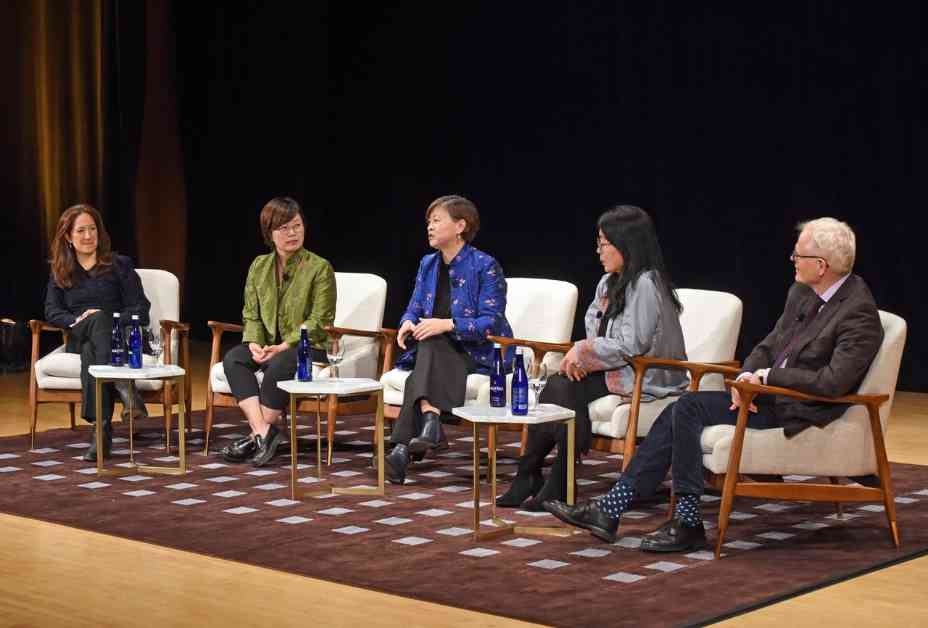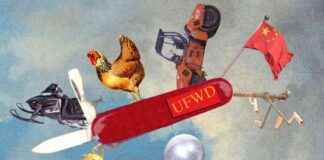China Reporting in Exile: Insights from ChinaFile
Annie Jieping Zhang, a Nieman Fellow at the Berkman Klein Center at Harvard University, is a prominent figure in the realm of media entrepreneurship, journalism, and column writing. As the Founder & CEO of Matters Lab, she has played a pivotal role in the decentralized media landscape. Zhang’s work embodies a commitment to shedding light on critical issues in China and beyond, utilizing her platform to amplify voices that might otherwise go unheard. Her background as a Nieman Fellow lends credibility to her insights, offering a unique perspective on the complexities of reporting in an increasingly challenging environment.
Li Yuan, known for her column “The New New World” in The New York Times, delves into the intricate relationship between technology, business, and politics in China and across Asia. As a co-founder and host of The New York Times’ technology podcast, Li Yuan brings a wealth of experience and knowledge to her reporting. Her role as a columnist allows her to explore the ever-evolving landscape of technology and its impact on society, providing readers with a nuanced understanding of the forces shaping the region.
Jiang Xue, an independent investigative journalist, has navigated the shifting sands of Chinese media from 1998 to 2015. Her experience as a reporter and editor for various news organizations gives her a unique perspective on the challenges facing journalists in China. In response to increasing censorship, Jiang Xue made the bold decision to pursue independent journalism, a move that speaks to her commitment to uncovering the truth in a restrictive environment. Her work serves as a testament to the resilience and determination of journalists operating in exile.
Ian Johnson, a Pulitzer Prize-winning writer and Senior Fellow for China Studies at the Council on Foreign Relations, has been at the forefront of research on China. His establishment of the China Unofficial Archives website underscores his dedication to preserving and disseminating valuable historical information. Johnson’s expertise in Chinese affairs provides invaluable insights into the country’s political, social, and economic landscape. Through his writing and research, he offers a nuanced perspective on the complexities of modern China, shedding light on its historical roots and future trajectory.
Susan Jakes, Editor-in-Chief of ChinaFile and Senior Fellow at Asia Society’s Center for China Analysis, has a rich background in reporting on China. Her tenure at Time magazine from 2000 to 2007 equipped her with the skills and experience necessary to navigate the intricacies of Chinese society. Jakes’ role as Editor-in-Chief of ChinaFile positions her at the forefront of reporting on Chinese affairs, offering readers a comprehensive and nuanced understanding of the country. Her work at the Asia Society’s Center for China Analysis further solidifies her expertise in the region, providing valuable insights into the dynamics shaping China’s future.
Challenges Faced by Journalists in Exile
Reporting from exile presents a myriad of challenges for journalists, including censorship, surveillance, and restricted access to information. The stories of Annie Jieping Zhang, Li Yuan, Jiang Xue, Ian Johnson, and Susan Jakes highlight the difficulties faced by journalists operating in hostile environments. These individuals have demonstrated remarkable resilience and dedication in the face of adversity, continuing to shine a light on critical issues despite the risks involved.
Censorship remains a pervasive threat to journalists in China, with the government exerting tight control over the flow of information. This censorship extends to social media platforms, where posts deemed sensitive or critical of the government are swiftly removed. Journalists operating in exile must navigate these restrictions carefully, finding innovative ways to disseminate their work without falling afoul of the authorities.
Surveillance is another significant challenge faced by journalists in exile, with the Chinese government employing sophisticated technology to monitor and track dissident voices. This surveillance extends to journalists operating outside of China, with the government using tactics such as hacking and intimidation to silence dissenting voices. Despite these risks, journalists like Jiang Xue have continued to pursue independent journalism, highlighting the importance of speaking truth to power in the face of adversity.
Restricted access to information poses yet another obstacle for journalists in exile, with the Chinese government tightly controlling the flow of information within the country. This lack of transparency makes it challenging for journalists to uncover the truth behind critical issues, leading to a reliance on unofficial sources and leaked information. The work of journalists like Ian Johnson, who have dedicated themselves to preserving and disseminating valuable historical information, is crucial in shedding light on the complexities of Chinese society.
Impact of Reporting in Exile
Despite the challenges faced by journalists in exile, their work has had a profound impact on shaping public discourse and raising awareness of critical issues. The stories of Annie Jieping Zhang, Li Yuan, Jiang Xue, Ian Johnson, and Susan Jakes have shed light on issues ranging from censorship and surveillance to human rights abuses and environmental degradation. Through their reporting, these journalists have given voice to marginalized communities and challenged the status quo, sparking important conversations about the future of China and its role on the global stage.
Annie Jieping Zhang’s work as the Founder & CEO of Matters Lab has been instrumental in empowering decentralized media platforms, providing a space for diverse voices to be heard. Her commitment to amplifying marginalized voices and shedding light on critical issues has had a lasting impact on the media landscape in China and beyond. Zhang’s role as a Nieman Fellow at the Berkman Klein Center at Harvard University further underscores her dedication to promoting independent journalism and fostering a culture of transparency and accountability.
Li Yuan’s column “The New New World” in The New York Times has been instrumental in dissecting the intersection of technology, business, and politics in China and Asia. Her in-depth analysis and reporting have provided readers with a nuanced understanding of the forces shaping the region, highlighting the complexities of modern China. Yuan’s role as a co-founder and host of The New York Times’ technology podcast further solidifies her position as a leading voice in Chinese journalism, offering valuable insights into the ever-evolving tech landscape.
Jiang Xue’s decision to pursue independent journalism in the face of increasing censorship speaks to her commitment to uncovering the truth and holding power to account. Her investigative work has shed light on human rights abuses, environmental degradation, and government corruption, sparking important conversations about the future of China. Xue’s resilience and determination in the face of adversity serve as an inspiration to journalists operating in challenging environments, reminding us of the importance of speaking truth to power.
Ian Johnson’s research and writing on Chinese history and society have provided invaluable insights into the country’s political, social, and economic landscape. His establishment of the China Unofficial Archives website has been crucial in preserving and disseminating valuable historical information, shedding light on the complexities of modern China. Johnson’s Pulitzer Prize-winning work has helped shape public discourse on Chinese affairs, challenging prevailing narratives and providing a platform for critical voices to be heard.
Susan Jakes’ role as Editor-in-Chief of ChinaFile and Senior Fellow at Asia Society’s Center for China Analysis has been instrumental in shaping public discourse on Chinese affairs. Her tenure at Time magazine equipped her with the skills and experience necessary to navigate the complexities of Chinese society, providing readers with a comprehensive understanding of the country. Jakes’ work at the Asia Society’s Center for China Analysis further solidifies her expertise in the region, offering valuable insights into the dynamics shaping China’s future.
Conclusion
The stories of Annie Jieping Zhang, Li Yuan, Jiang Xue, Ian Johnson, and Susan Jakes underscore the challenges and opportunities facing journalists in exile. Despite the risks involved, these individuals have continued to pursue independent journalism, shedding light on critical issues and challenging prevailing narratives. Their work serves as a reminder of the importance of a free and independent press in holding power to account and fostering a culture of transparency and accountability. As journalists operating in exile, Zhang, Yuan, Xue, Johnson, and Jakes have made invaluable contributions to shaping public discourse and raising awareness of critical issues, demonstrating the power of journalism to effect change in even the most challenging environments.

















